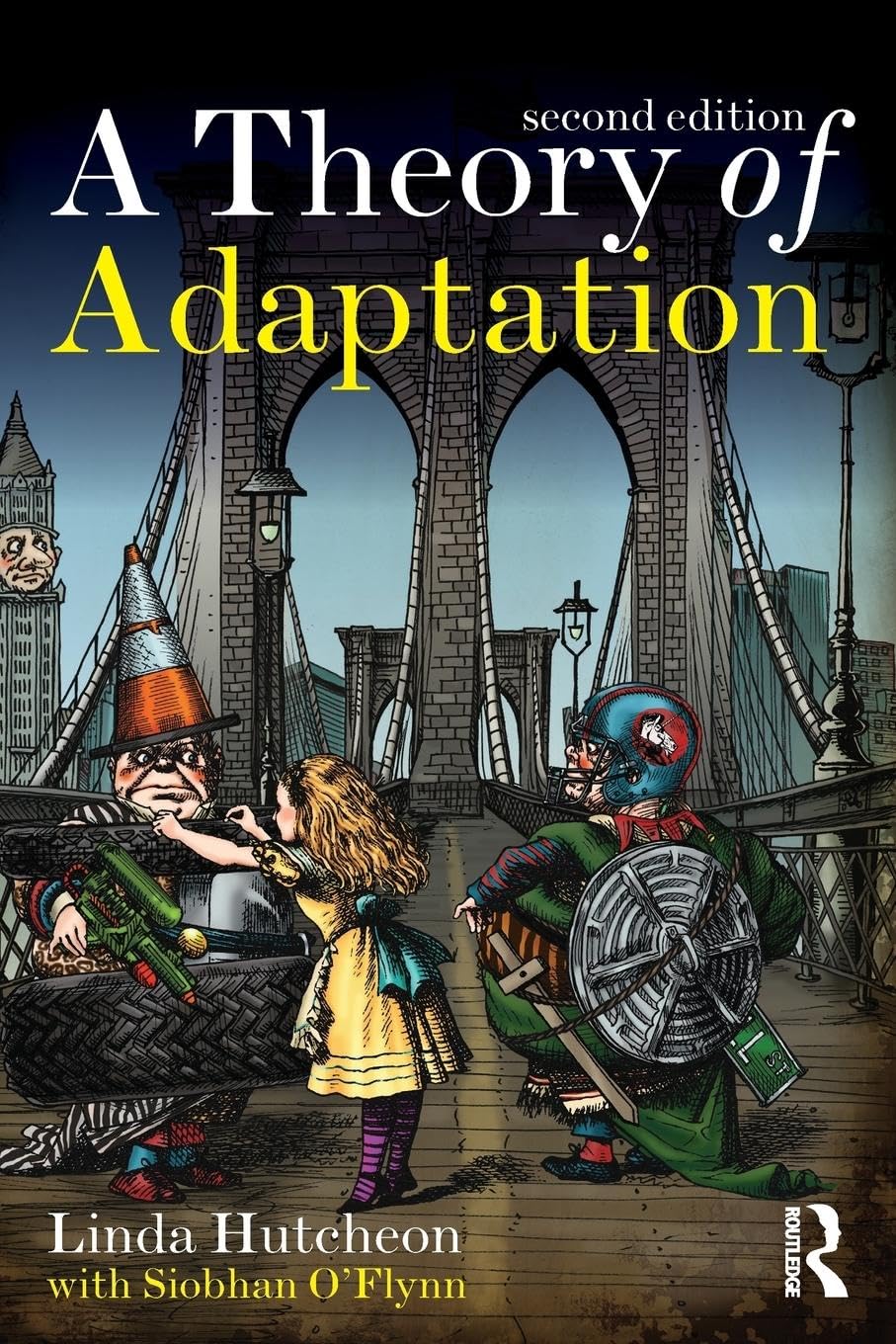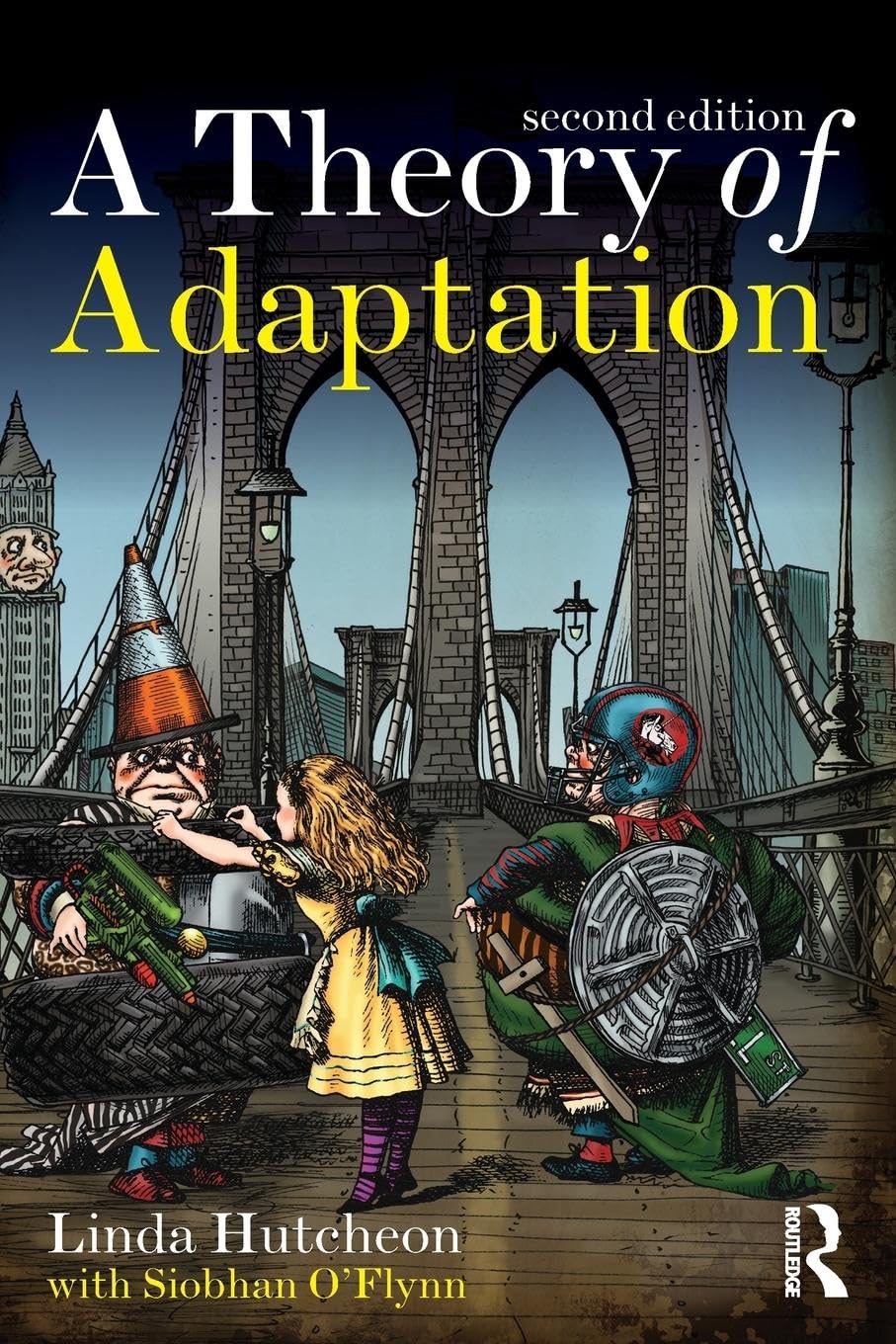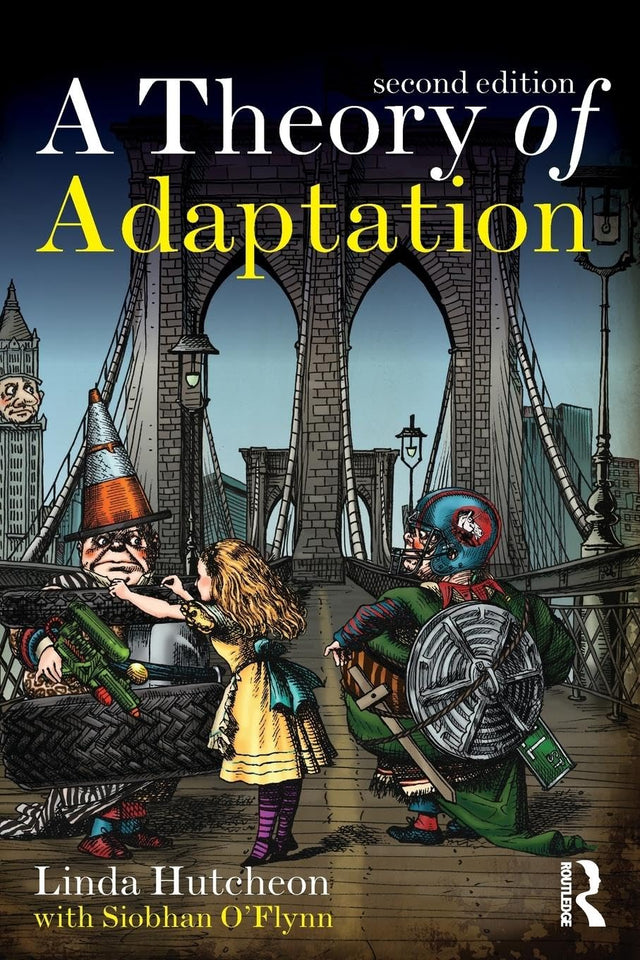A Theory of Adaptation
A Theory of Adaptation is backordered and will ship as soon as it is back in stock.
Couldn't load pickup availability
Genuine Products Guarantee
Genuine Products Guarantee
We guarantee 100% genuine products, and if proven otherwise, we will compensate you with 10 times the product's cost.
Delivery and Shipping
Delivery and Shipping
Products are generally ready for dispatch within 1 day and typically reach you in 3 to 5 days.
Book Details
-
Author: Linda Hutcheon
-
Publisher: Routledge
-
Language: English
-
Edition: 2nd Edition
-
ISBN: 9780415539388
-
Pages: 274
-
Cover: Paperback
-
Dimensions:
-
8.9 x 6.1 x 0.7 inches
-
About The Book
A Theory of Adaptation by Linda Hutcheon is a comprehensive exploration of the practice of adaptation in various forms of media. Hutcheon argues that adaptation is central to storytelling and creative expression, offering a theory that spans across numerous platforms, including film, opera, video games, pop music, and even theme parks.
This new edition includes a preface by the author discussing recent developments in the study of adaptation, as well as a new epilogue by Siobhan O’Flynn that addresses the role of digital media in adaptation. O’Flynn examines the impact of transmedia practices, fan-based adaptations, and the adaptation of books to digital formats, making this edition particularly relevant to current trends in media studies.
Key features of the book include:
-
Wide Range of Adaptations: The book explores adaptation across various media, offering insights into creative possibilities and the artistic process in diverse formats.
-
New Edition Updates: This second edition includes a new preface and epilogue, addressing developments in the adaptation field, especially with the rise of digital media and transmedia practices.
-
In-depth Analysis: Hutcheon examines the breadth and scope of adaptation, offering theoretical insights while also grounding her arguments in practical examples from various media.
-
Critical Perspectives: The book provides a critical framework for understanding adaptation in a rapidly changing media landscape, making it an essential resource for students and scholars of media studies, literature, and cultural theory.
This book is an invaluable resource for anyone interested in the evolving field of adaptation and its impact on modern storytelling across various media platforms. It is particularly relevant for those engaged in literary and media studies, offering both a theoretical framework and practical case studies.





